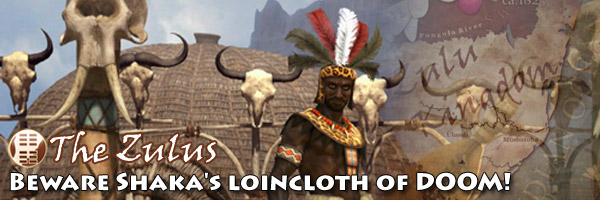
When Civilization V first launched back in 2010, it was in a pretty ugly, incomplete state. The game was buggy, was very slowly-paced, was completely missing any sort of espionage mechanic, and had other gaping holes in its design. It took about six or eight months' worth of patching and updating from Firaxis before the game reached a state that I would consider "adequate". Its first expansion, Gods & Kings basically came off as a fan wishlist, as it re-added (and re-vamped) many of the features and systems that had been removed between Civ IV and Civ V (religion and espionage). That expansion also addressed a lot of core complaints with the game by dramatically improving combat balance and A.I. intelligence. The second expansion, Brave New World, almost completely re-invented the game and added a considerable amount of innovation in the form of trade routes and the new great works and artifacts systems. It also added an exceptional, robust roster of new civilizations.
Civilization VI launched with most of Brave New World's innovations still in place (though culture seems to have regressed a bit), and also added its own new innovations in city management. It felt like a much more complete game at launch than Civ V was. At the time, I was blown away by Civ VI, but as time has gone by (and I've increased the difficulty level), my enthusiasm for the game has diminished a bit.
I really enjoy the game when I play it on the King difficulty level (the "easiest" of the "hard" difficulty levels, in which A.I.s only get very slight bonuses). As soon as I up the difficulty to Emperor, I start to get frustrated, and the game becomes much less fun. The problem is that on the difficulty that I enjoy (King), the A.I. puts up very little resistance, and the game (though fun) is generally too easy. I can play the game on Emperor (I haven't experimented much on Immortal or higher in VI yet), but the stacking of the deck makes the game less enjoyable because I often feel that I'm blocked out of many early-game strategies that I want to try (such as early religion or wonders). It's all possible to accomplish, but it's prohibitively so, and the game often pushes me too far in the direction of militancy.
Doesn't address core game issues
Nope. Still no build queue...
In summary, while Civilization V's first expansion filled many of the gaping holes and addressed many of the flagrant flaws in vanilla Civ V's design, VI's first expansion mostly just stacks additional mechanics and features onto an already-complete game, while leaving many of VI's annoyances, quirks, and genuine flaws un-resolved. Let's get these complaints out of the way first.
Rise and Fall does little to address complaints with shallow unit upgrade paths. There's still generally only a single unit of a given unit class every other era.
Rise and Fall does very little to improve the combat systems in general. Units still die far too easily (in my opinion) (though this seems to be due in large part to the disparity in unit upgrade levels mentioned above), and imbalances between melee, ranged, and mounted units are still prevalent.
Rise and Fall does nothing to address complaints that I've had with the maps feeling very crowded and claustrophobic.
Civilization VI back-loads most of its culture, tourism, artifact, and great work systems into the second half of the game, and Rise and Fall does very little to make these feel like game-long engagements the way that Brave New World mostly did.
It does very little to make the late-game victory march feel less like a slog, or to make the early-game feel less rushed (especially on higher difficulties).
It does very little to address complaints with how the A.I. agendas can make them very erratic and schizophrenic. A.I.s are still far too willing to agree to joint wars against their own friends, allies, and trade partners, and joint wars in general still feel like a cheap loophole that lets warmongers bypass the casus belli system and warmonger penalties. Further, while the expansion does allow for deeper alliances with mutual benefits for the civs involved, it does not expand alliances to the point of allowing for shared or cooperative victories. So dipomacy in general still feels like a zero-sum-game with every civ acting to the exclusion of all others.
There's still no icon or indication that a unit has experience bonuses from barracks or buffs such as "Spears of Fion", or to indicate which abilities or penalties a given unit has by default.
We still can't assign military units to escort traders, nor can we see the path of any particular trader after it's started a route. And Trade routes themselves still don't generate reciprocal profit by default, meaning there's no reason to want other civs to send routes to you (other than getting a free road out of it, which isn't all that rewarding).
There's also still no build queues for cities!
Religion was overhauled in a patch last year, and religious units occupy their own layer.
Some major game upgrades have already been made available via post-release patches and DLC updates, and I'm grateful for those. New resources and wonders have trickled in since launch. One of the best improvements came in an update last year that allowed religious units to exist on their own layer, so that swarms of missionaries don't block your own units' movement in your territory. And the religious system in general was improved. So the game, overall, has improved a little bit since release. It just hasn't improved as dramatically as Civ V had improved in its first year. Though, to its credit, Civ VI didn't have as much room for obvious improvement. [More]
632a8ce2-8692-4ca9-aebc-779064580062|0|.0
Tags:Sid Meier's Civilization, Civilization IV, Civilization VI: Rise and Fall, strategy, history, dark age, golden age, loyalty, emergency, alliance, Cree, Poundmaker, Dutch, Netherlands, Wilhelmina. Georgia, Tamar, Chandragupta, India, Korea, Seondeok, Mongolia, Genghis Khan, Scottish, Robert the Bruce, Mapuche, Lautaro, Zulu, Shaka

Rounding out my series of strategy posts about Brave New World's new civilizations, here is the Zulu. But first, I want to take a moment to thank the readers and everyone who has provided feedback and constructive criticism for these posts. When I first started with Assyria, I wasn't sure if I'd bother doing any other civs at all - let alone all of them! But people read the posts and encouraged me to keep writing them, and now they are among the most popular posts on this blog! I have been very humbled and gratified with the responses that I have received. I'd like to specifically thank all of those who posted suggestions and feedback on the forums. I really appreciate your participation. Many of your ideas and strategy alternatives have been incorporated into revisions of these posts, and I've taken your criticisms to heart in writing the subsequent posts. I'd also like to thank the fine folks at PolyCast, who have taken the time to discuss and publicize these posts, as well as provide additional feedback. Keep up the good work!
As for my future plans: I expect to take some time away from Civ to catch up on some other games, like Dark Souls II and some Steam games that I've had sitting on my computer for a while (like Europa Universalis IV). I also intend to get back into modding and some other personal projects. This does not mean that I am completely done with Civ V strategies though. I do intend to look at some of the civs whose strategies were significantly changed by the Brave New World expansion (particularly France and Arabia, whose uniques were redesigned). I will continue to write strategies as time permits, and will continue to check the forums and comments and possibly update these posts if readers provide new insights. Thanks again, and keep on Civin'!.
Now, without further ado, the Zulu!
Little is known about the regions of southern Africa prior to European invasions and colonization. The region was divided up into small tribes and kingdoms, but they kept very few written records of their histories. In the early 19th century, the Zulu Kingdom (lead by Chief Shaka) came to dominate large chunks of the eastern coast of southern Africa. Shaka's successors expanded the kingdom through wars with rival tribes and European settlers for almost a century before the British offered an ultimatum in 1878 to King Cetshwayo regarding a territory dispute between the Zulu and the Boers (Dutch settlers in Africa). Cetshwayo rejected the terms of the ultimatum, leading to the Anglo-Zulu war. The Zulu won an early victory, overwhelming the British with their tactics and sheer numbers, handing the British their single worst defeat to a native African fighting force. In the long-term, however, the Zulu were incapable of standing up to the British army that was equipped with firearms. The British sieged the Zulu capital, Ulundi, exiled King Cetshwayo to Cape Town, and divided the Zulu Empire into 13 "kinglets". This lead to internal conflict between the kinglets, forcing the British to reinstate Cetshwayo as the King of the Zulu. But conflict continued, and Ulundi was again sieged by one of the kinglets and Cetshwayo was killed. When the Union of South Africa was formed, the Zulu Kingdom stopped being recognized as a sovereign power, although several Zulu kings did retain significant influence in the region through the middle of the 20th century.

Shaka kaSenzangakhona was the first King of the Zulu Empire. He united several small tribes and then initiated significant military, spiritual, and cultural reforms. He used innovative and highly-aggressive military tactics to conquer neighboring tribes and establish the Zulu Kingdom as a dominant force in the southern Africa region. He was a brutal and efficient leader and introduced the iklwa stabbing spear and large cowhide shields that allowed his soldiers to quickly surround their enemies and engage in visceral close-quarters combat. His impi soldiers employed a novel "bull horn" formation consisting of three parts:
- the "chest" was the main force composed of senior soldiers who would engage the enemy to keep them pinned and immobile,
- the "horns" were squads of young, fast warriors who would flank the enemy that was engaged with the chest,
- and the "loins" were a reserve force behind the chest and with their backs to the battle who would defend the army from flanking maneuvers and chase down escaping enemies.
These tactics proved incredibly useful to Shaka and to his successors (even against the muskets of European invaders), and it was even used to crush the British in the opening battle of the Anglo-Zulu war. However, these tactics could not survive against the killing efficiency of more advanced firearms and cannons and were eventually abandoned. [More]
6c911954-01d0-47d1-9bc6-d03b1185221c|9|5.0
Tags:Sid Meier's Civilization, Civilization V: Brave New World, Civilization V, Zulu, Shaka, Iklwa, Ikanda, Impi, spear throw, unit maintenance, war, warmonger, promotion, buffalo, buffalo horns, buffalo chest, buffalo loins, melee, flanking, Africa, barracks, pikeman, Civ-V

In my review of the Brave New World expansion for Civilization V, I expressed some disappointment that some of the legacy civilizations didn't receive significant updates. I also complained about a few mechanical issues such as how the "warmonger" mechanic works and the value of trade routes. Well, Firaxis has released a major update to the game earlier this fall that addresses some of these complaints.

Several of the vanilla civilizations received a major overhaul. As I mentioned in my review, Germany and America seem to have been completely one-upped by the Zulu and Shoshone. Well, Germany has been given a major update, and America has received a small tweak in order to better differentiate them from the BNW successors. In addition, Japan has received a small (but significant) buff.
Germany was probably the civ that was in the most dire need of a facelift, since the Zulu leave them completely in the dust. Both civs had a huge military flavor, discounts for unit maintenance, and a unique Pikeman replacement, and the Zulu had Germany beat on all accounts. In order to differentiate the two, The Landsknechts unique unit was replaced with a new unique building, the "Hanse". [More]
d72a2b1a-ba97-4211-8b58-43b09c6b97b2|5|5.0
Tags:Civ V Fall Patch, patch, Civilization V: Brave New World, Civilization V, Sid Meier's Civilization, Civilization, Firaxis, 2K Games, expansion, PC, Steam, strategy, grand strategy, turn-based strategy, Germany, Japan, America, Zulu, Shoshone, Indonesia, tourism, tactics, trade, trade route, archaeology, culture, gold, warmonger, Landsknecht, Civilization IV, Civilization V
|

| 12 | | | | | | | 60 | | 11 | | | | | | | 55 | | 10 | | | | | | | 50 | | 09 | | | | | | | 45 | | 08 | | | | | | | 40 | | 07 | | | | | | | 35 | | 06 | | | | | | | 30 | | 05 | | | | | | | 25 | | 04 | | | | | | | 20 | | 03 | | | | | | | 15 | | 02 | | | | | | | 10 | | 01 | | | | | | | 05 |
|